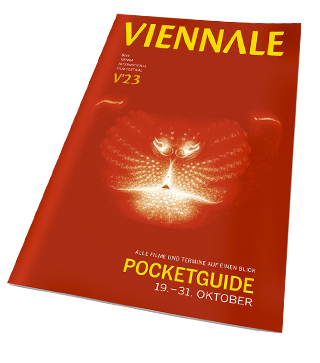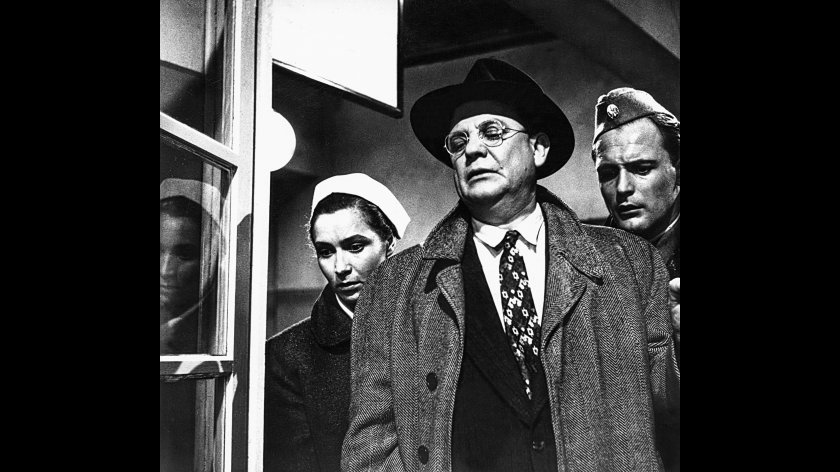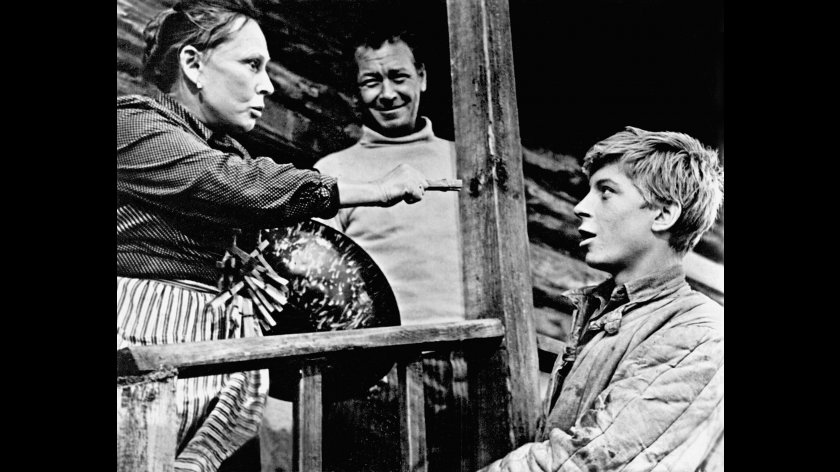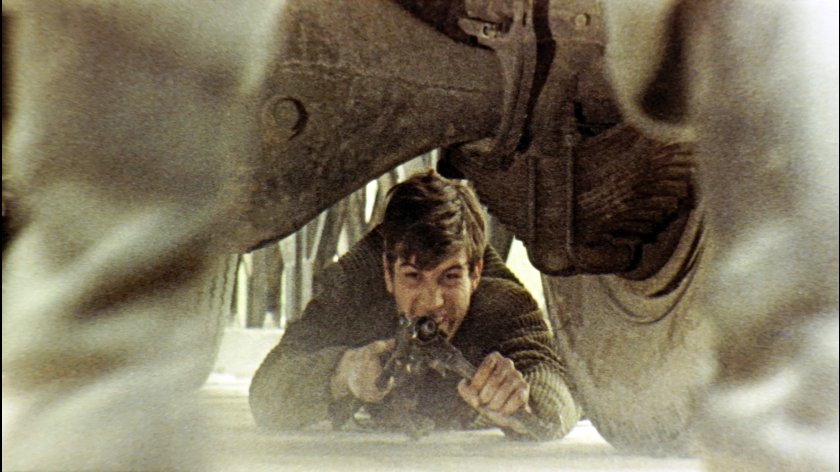Ne okreći se, sine
Don't Look Back, My Son
Ein Kommunist wird von Soldaten des „Unabhängigen Staates Kroatien“, dem Vasallenstaat Nazideutschlands, in das Vernichtungslager Jasenovac deportiert. Ihm gelingt die Flucht – doch bei seiner Rückkehr nach Zagreb muss er feststellen, dass sein Sohn in einer Ustascha-Schule einer Gehirnwäsche unterzogen und zum Kommunisten und Judenhasser wird. Noch schwieriger als die Befreiung des schwer bewachten Buben scheint allerdings die von dessen Herz und Verstand. NE OKREĆI SE, SINE – inszeniert als humanistisches Melodram wie als Psychostudie über politische Überzeugung – entwickelt sich zum Partisanenfilm, als der Vater auf in einem Wald versteckte Widerstandskämpfer stößt.
A pre-war communist (a career highlight performance by Bert Sotlar, a Yugoslavian acting giant) is arrested by NDH forces (the Croatian fascist puppet regime) and sent to the Jasenovac concentration camp, but manages to escape the death train and return to his hometown of Zagreb. There he tries to reestablish contact with his son, but learns that the boy has been taken to an Ustashe boarding school and brainwashed to hate communists and Jews. The father daringly attempts to rescue the boy from the heavily guarded boarding school and even manages to succeed, although rescuing the boy’s heart and mind from the poisonous ideology will prove a more difficult task. One of the most brilliant Croatian films ever made, NE OKREĆI SE, SINE is a partisan narrative in the sense that the protagonist desperately wants to escape the city and join the partisan resistance in the nearby forest; partisan forces also make a memorable and perfectly plausible deus ex machina appearance at one crucial (“Don’t look back!”) moment of the film. Branko Bauer –the leading figure in the classical (1950s) period of Yugoslavian cinema along with France Štiglic – might have directed NE OKREĆI SE, SINE as a superb example of a humanist melodrama, or a suspenseful psychological study of conflicting political beliefs, but it’s also easy to argue that his film is much more important as a piece of enlightened education. One that is perhaps even more relevant today, when parts of Croatia are again openly celebrating the NDH, and only 7 out of 909 elementary schools in Croatia take their pupils to visit Jasenovac.
- Bert Sotlar
- Zlatko Lukman
- Radojko Ježić
- Lila Andres
- Nikša Štefanini
- Arsen Diklić
- Branko Bauer
- Branko Blažina
- Boris Tešija
- Bojan Adamič





